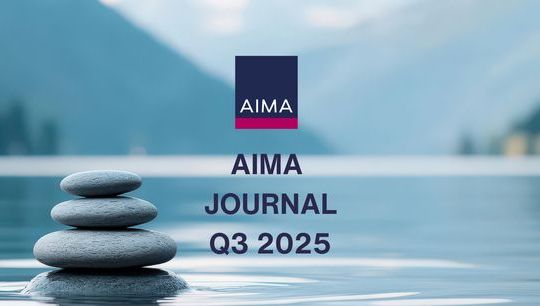Empowering hedge funds: How getting KYC and KYP right can transform the investor experience
By Stefan Pantazis, Aiviq
Published: 20 November 2023
In today’s complex and ever-changing financial landscape, due diligence and transparency has become paramount. Hedge funds around the world find themselves in a shifting environment that requires a meticulous understanding of investor needs and product objectives. At Aiviq, we believe the concerted global regulatory focus on reliable and efficient Know Your Client (KYC) and Know Your Product (KYP) compliance regimes provides the bedrock for getting this right.
KYC and KYP are not just regulatory buzzwords; they provide the scaffolding for wider client and product governance initiatives and can transform investor outcomes. Hedge funds that prioritise these processes will be well-positioned to attract and retain client inflows in an ever-evolving investment ecosystem.
Hedge fund innovation in 2023
Hedge funds, and equally their investors, are embracing modernisation. A primary example of this is the shift away from traditional funds with manual subscription processes and lengthy offering memorandums to more agile liquid alternatives funds with lighter onboarding requirements and more flexibility. This market trend, underscored in a recent BNP Paribas1 research paper sees investors favouring immediate access to assets and near-instant onboarding processes through digital apps and online portals for faster, lower-risk onboarding.
Digitising the investor onboarding and subscription experience increases fund flows, but also offers a range of broader benefits such as data security, contract governance and the creation of digital data assets that can drive management reporting and actionable sales insights – critical as firms start to leverage Generative AI and machine learning to transform the investor experience.
As the retail investor footprint grows in the industry, we see these digital and AI trends complemented by regulatory trends for greater transparency accountability and compliance, where robust KYC and KYP becomes paramount.
The significance of KYC in hedge funds
Globally, KYC is often considered the cornerstone of compliance frameworks aimed at identifying and validating investors, providing a mechanism to standardise investor data collection, prevent fraud, money-laundering and ensure regulatory compliance.
Conceptually, KYC has been around for a long time and many solutions have emerged to that attempt to increase investor due diligence and oversight in various jurisdictions or vehicle types. However, establishing globally consistent, regionally compliant processes that can maintain suitably flexible as a hedge fund scales or expands its distribution or product set remains a challenge for many firms.
Whilst the major benefits of digitising KYC and subscription documents still centre around compliance and cost-reduction, firms also need to consider how this investment can help optimise internal sales teams and empower distribution strategies.
The four drivers of investment in KYC processes:
- Compliance: The regulatory environment is evolving, and hedge funds must ensure they meet regulations across all their legal jurisdictions to avoid legal penalties and reputational risk.
- Risk mitigation: Understanding investors’ backgrounds and financial situations allows managers to assess the risk they may pose to the firm and other investors.
- Credibility and trust: Investors are more likely to deploy capital with funds that can demonstrate a commitment to understanding client needs and offer differentiated investor experiences that reflect the brand.
- Personalisation: KYC data facilitates the customisation of investment strategies by providing a single view of investors, enabling them to tailor products to meet individual need. Think “how do my onboarding and due diligence processes bring investors closer instead of scaring them away?”.
The vital role of KYP in product selection
While KYC focuses on the investor side, KYP regulatory initiatives centre on the products offered by investment firms and covers how assessments of investment instruments are undertaken to ensure they are suitable given a fund’s strategy, objectives and approach to risk. Importantly, KYP arms distributors and advisors with the necessary knowledge to successfully match products to suitable investors.
As Alternative Investment Funds (AIFs) become more accessible to accredited investors2 (formerly they were the sole preserve of institutional investors), regulators are setting out requirements (e.g., IIROC Rule 3300 in Canada) for additional due diligence on investment instruments to be made available to investors.
With this in mind, we believe KYP and KYC are tacitly interconnected concepts, given investor suitability cannot be evaluated without a robust and consistent understanding of what the fund sets out to achieve. Similarly, firms that can demonstrate detailed product due diligence and documentation are likely able to focus in more on their target market, garnering greater, more sustained inflows versus peers.
Why robust client and product due diligence goes hand in hand:
- Regulatory compliance: Just as with KYC, adhering to the regulations surrounding product selection is essential in ensuring hedge fund’s products align with stated strategies and objectives.
- Risk management: A thorough KYP process enables hedge funds to identify and manage the risks associated with their chosen investments - essential for protecting both the fund and its investors.
- Sales optimisation: Effective product selection is fundamental to achieving the fund’s investment objectives and delivering on its promised returns.
- Diversification: A well-executed KYP process allows hedge funds to diversify their product offerings, catering to a broader range of investor needs and preferences.
Market challenges and opportunities
- The challenges that Aiviq sees firms grappling with centre around the complexity of product strategies, the need for high quality, up-to-date investor and market information, and the ever-evolving regulations. However, these challenges also present opportunities for innovation and growth. Technology integration: Hedge funds can implement technology to streamline and automate KYC and KYP processes, reducing the risk of human error, increasing consistency, and speeding up onboarding and product selection for investors.
- Data analytics: Advanced data analytics can help hedge funds make better-informed decisions about their clients and products. By harnessing emerging pools of internal and external data, funds can gain deeper insights into market trends and investor behaviour.
- Expert partnerships: Collaborating with third-party experts who specialize in KYC and KYP services can alleviate the burden on hedge fund management. These experts can provide the knowledge and tools necessary to ensure compliance and efficiency.
- Continuous education: Staying updated on regulatory changes and industry best practices is essential. Hedge funds need to continue investing in their teams to ensure they can adapt to evolving requirements.
In conclusion, shifting product and investor dynamics, coupled with evolving regulatory initiatives means hedge funds have an opportunity to differentiate from peers by embracing KYC and KYP processes. The opportunities brought about by technology and AI are also working to compound the benefits associated with the digitisation of data and automation of manual workflows that have historically plagued onboarding and subscription processes.
In a competitive industry where trust and transparency are essential, we see investments in streamlined and reliable KYC, KYP and subscription processes is an investment in long-term success.
1. Mulligan Fiona, Hedge funds explore the next big distribution opportunity, https://securities.cib.bnpparibas/hedge-fund-retail-distribution/
2. https://iclg.com/practice-areas/alternative-investment-funds-laws-and-regulations/canada, 7.0 Trends



